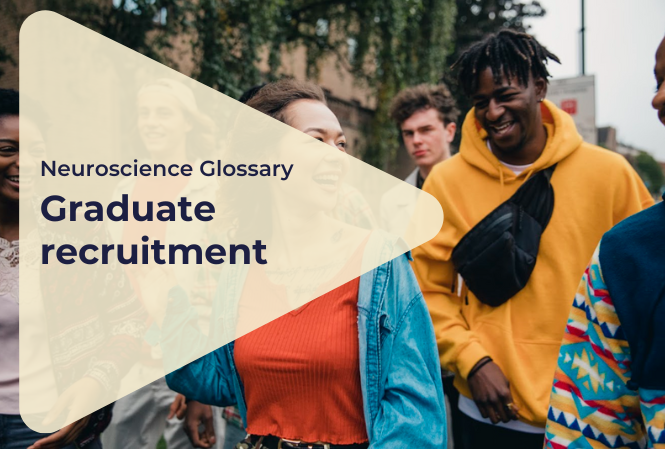
Table of Contents
What is graduate recruitment?
Simply put, “graduate recruitment” is the practice of hiring people who have recently graduated from college/university, or will do so soon.
How does the graduate recruitment process work?
For larger employers, graduate recruitment is an organised annual process linked to a dedicated “grad scheme”, where new hires experience different areas of the business and pick up vital skills along the way.
The graduate recruitment process itself inevitably varies from company to company. But it’ll always contain a few key stages:
Sourcing
Before the pandemic, most large employers put face-time first when it comes to graduate recruiting and attracting young, hopeful graduates. Careers fairs, university events, roadshows – all (previously) great ways to get in front of great talent and pitch yourself as an employer. In the UK, this circuit is known as the “milk round”.
Now though, the milk round’s a bit of a tricky one, with most events disrupted by the pandemic. That’s one reason for the ever-increasing importance of employer brand when sourcing incredible graduates.
Did you know?
Your employer brand is how prospective candidates view you as an employer, and it’s pivotal to whether candidates apply to your graduate roles or scheme. Note: there’s a big difference between this and the wider brand you project to potential customers and clients. Read up a bit more on employer branding here.
Other common aspects of graduate sourcing during graduate recruitment include careers sites, job boards like Indeed, and social media platforms like LinkedIn.
Application
Once you’ve attracted some candidates, the next step is for them to actually apply to one (or more!) of your graduate roles, or a place on your grad scheme.
This can be a fairly drawn-out part of the graduate recruitment process. Graduates will often need to give employers their university degree results (or their projections), as well as a CV. The initial application process also tends to involve answering a series of questions probing grads’ motivations for applying, their skills, experience, and wider interest in the employer as a business, or the sector they operate in.
They’ll also need to answer more basic questions about their right to work in the UK, any disabilities they may have, and other details that every employer has to ask.
Assessment
Having reviewed each application, it’s time to progress potentially suitable candidates to the assessment stage of the graduate recruitment process.
This will often involve some kind of psychometric test, whether it’s measuring grads’ aptitude or their personality. The former measures candidates’ cognitive ability – how quickly they learn, for example – while the latter aims to measure how they’ll usually behave.
Employers use these assessments as a screening solution, to quickly get a clearer sense of which candidates will succeed in their graduate roles.
Want to read more about psychometrics?
There's a lot more information about psychometrics than we can share in this blog post! If you want to learn more, check out our full guide below.
Psychometric Testing GuideAssessment day/interview
The final stage of most large employers’ graduate recruitment campaigns is the assessment day, which often promises a diverse, intense slate of tasks. These can include:
- Group tasks
- Role play work
- Written tests
- Presentations
- Individual or panel interviews
However, smaller employers often opt to go straight to a more traditional interview stage, rather than holding an assessment day.
What are the benefits of hiring graduates?
There are, frankly, tonnes of great benefits of hiring graduates. Here’s a quick snapshot:
Cognitive diversity
A diverse group of graduates will bring with them new ways of thinking – known as cognitive diversity. McKinsey has found that cognitive diversity links directly to profitability – meaning that a great graduate intake can set you up for long-term organisational success.
And, in the short-term, the graduates you get from your graduate recruitment will likely help you solve your problems and innovate faster. Win-win.
Return on investment
A study by the ISE found that, on average, employers retain about 57% of their graduate intakes beyond five years. Now, that’s a pretty good deal, when the average cost to hire for grads stood at £4,739 in 2019. Not bad for five years’ service!
And, what’s more, grads are both productive and affordable. The ISE study shows that the average grad increases their salary by about £11,000 over their first three years in a business, highlighting their value. But, to start, they’ll often be more affordable than a non-grad hire – the median graduate salary stood at £29,000 in 2019.
Succession planning
It always pays to be thinking about tomorrow. That’s why an intake of great grads sets up to find and mould your future leaders. Some of the world’s best business leaders are company lifers.
Free Playbook: CV-less Hiring
Learn to navigate the skills crisis by looking beyond the CV. Get access to our free in-depth guide on rethinking employment practices, scrapping the CV, and how to implement hiring for potential in your company.
Download the playbook
Two big challenges with graduate recruitment:
Seeing beyond the CV
Earlier, we touched on how academic qualifications and a CV are both central to the application process for most graduate recruitment schemes. But there’s a problem with that – they both look backward, and aren’t predictive of future success.
The average grad has little to no work experience, so their CV won’t actually tell you much about their true potential. In fact, there’s a risk that the CV acts as a gateway for unconscious bias into your process.
As recruiters will manually review dozens, potentially hundreds of fairly sparse CVs in the graduate recruitment process, they’re increasingly likely to hone in on subjective details, like:
- Names
- Universities or schools
- Individual phrases
These mean little in terms of likely performance, but will often stimulate bias all the same. This way, using CVs in the graduate selection process can actually hold up your efforts to create diverse, successful teams.
Screening graduates at high volumes
The other big challenge of graduate recruiting, especially for larger graduate employers, is scaling up how you hire – to accurately find the right people amid thousands of applications every year. Since the pandemic, many employers are seeing higher application volumes than ever. That means it’s never been more important to screen smartly.
Again, CVs can hold up this part of the graduate hiring process. Manually reviewing each one – as well as the rest of a candidate’s application – takes up weeks of valuable time. That’s time you, or your recruiters, probably don’t have! And, as we’ve seen, there’s no guarantee all that time will lead to the best hires anyway…
Are you an employer?
Find out how Arctic Shores can help you. Get in touch today to streamline your hiring - improving cost efficiency, reducing time to hire and eliminating bias.
Book a demo
Graduate recruitment solutions from Arctic Shores:
At Arctic Shores, we’ve heard about these challenges hundreds of times. They’re two of the main reasons employers like the BBC, Capita and the Ministry of Justice rely on us to support their graduate recruitment.
These employers use our behaviour-based assessment to see beyond the CV, beyond the ordinary measures of human potential. The result? The objective insight they need to find the right graduates, in the right way.
By measuring behaviours like creativity, resilience and learning agility in action, the assessment captures natural strengths and true potential. No more looking back at a grad’s CV, or their academic record. No more natural bias affecting your decision. Just a fast, fair, engaging assessment stage of graduate recruitment, that gives you the best shot at seeing who’ll suit your graduate roles.
So, if you’re looking for the best way to find great grads, let’s talk about how we can help. Just click here, and arrange a free peek at our behaviour-based assessment.
In the meantime, download our Playbook for CV-less hiring to find out how hiring for potential can transform your hiring process.
Graduate Recruitment FAQs
Graduate recruitment can be quite an in-depth topic to tackle all at once, so we've written some easily digestable answers to some of the most frequently asked questions on the topic below!
> What are the key benefits of hiring graduates?
Hiring graduates brings cognitive diversity, strong ROI, and leadership potential. They offer fresh thinking, are often more affordable and adaptable than experienced hires, and can be developed into future leaders who grow with your business over time.
> Why are CVs not ideal for graduate recruitment?
CVs are limited in value for graduate roles because they often reflect little to no real work experience and can introduce unconscious bias. Details like names or university names may sway decisions unfairly, without indicating future job performance or potential.
> How can employers fairly and efficiently assess large volumes of graduate applications?
The best approach is to replace CV reviews with behaviour-based assessments that measure traits like resilience, creativity, and learning agility. This helps employers screen high volumes fairly and objectively, while uncovering each candidate’s true potential.
Want to learn more about our assessment?
Or, if you’d like to learn a bit more about our assessment at Arctic Shores, just let us know here. We’ll get back to you pronto.
In the meantime, download our Playbook for CV-less hiring to find out how hiring for potential can transform your hiring process.
Start your Skills-based hiring journey today
Get in touch to understand how our task-based assessment has helped 150+ leading employers future-proof their hiring process.
Contact usRead Next
Sign up for our newsletter to be notified as soon as our next research piece drops.
Join over 2,000 disruptive TA leaders and get insights into the latest trends turning TA on its head in your inbox, every week
Sign up for our newsletter to be notified as soon as our next research piece drops.
Join over 2,000 disruptive TA leaders and get insights into the latest trends turning TA on its head in your inbox, every week


